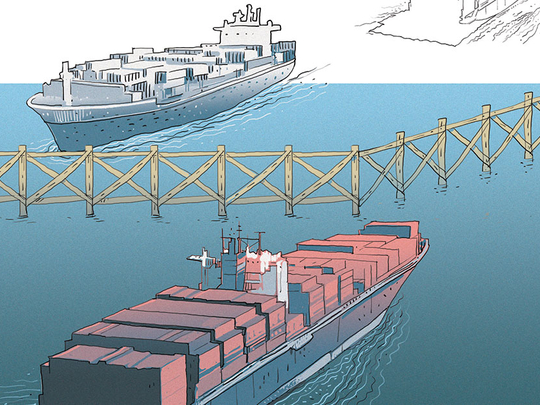
The dream of coherent global management of human affairs has faded as the major powers have ignored or ridiculed the United Nations into irrelevance. The world has become more complicated as the rigidities of the Cold War have given way to the roiling chaos of a multipolar world. In theory, this should have boosted the multilateral environment of the United Nations and similar bodies, but the deliberate sidelining of the UN by the United States, when it became the world’s sole superpower, has left a damning legacy of opportunistic leadership-government by the strong.
This week’s final agreement on the 12-nation Trans-Pacific Partnership (TPP) is a good example of the dangers of such pick-and-choose treaties that are not globally led and managed by a neutral and disinterested body that seeks the greater good of the entire world community. The TPP will liberalise trade in 12 nations that contribute 40 per cent of the world’s economy and moves the cause of free trade forward. This is good as far as it goes, but there is a dangerous political failure because the TPP ignores China.
It is hard to see how any treaty pretending to be a trans-Pacific trade deal can deliberately miss out the largest nation on the Pacific rim, with the American proponents of the deal embarrassing themselves when they glibly say that they expect China will fall in line as many of its most important trading partners will be following the TPP rules anyway. China is too large to ignore and it will now create its own way forward, outside the bounds of the TPP, to the great detriment of the rest of region. The political exclusion of China has made the TPP into an American-dominated treaty, helping firm-up the on-coming clash between China on one hand and the US and its allies on the other.
It would have been better if the World Trade Organisation (WTO) had persisted with its Doha Round and taken the entire world community forward with an all–encompassing treaty that included all member states and was a genuine breakthrough for the worthy cause of free trade and the huge expansion in prosperity that it has been proved to bring. Instead, the protectionists have won, and each large nation is seeking to nurture its own interests, as smaller nations rush to back whoever they think can do them the most short-term good.
Comatose
This is happening across the whole territory of international relations. When US President Barack Obama took the presidency in 2009, he claimed he wanted to incorporate the world’s rising powers as full partners in global governance. But there has been no movement to reform the UN Security Council and the WTO is comatose, Nato is struggling to re-find its strategic purpose in the face of Russian resurgence, while the International Atomic Energy Agency courts obsolescence by omitting China and India as members.
Only the gravity of the financial crisis of 2008 and 2010 forced the oligopoly of the G8 (now G7 after the departure of Russia) to widen its doors to include the developing nations into the new G20, including Saudi Arabia, without any involvement of global bodies such as the World Bank or International Monetary Fund. But after the recession was averted, the G20 has reverted to its previous irrelevance. The emerging countries have to wonder if they have a permanent role in global financial governance as they watch the G7 continue to meet regularly and take important decisions.
But the failure of the web of global institutions has not led to the potential anarchy of having global governance being dominated by sovereign states that recognise no higher authority. There is a lingering international order which is maintained through various regional institutions (Association of Southeast Asian Nations or the Gulf Cooperation Council), bilateral and multilateral alliances and security groups (Nato), ad hoc coalitions (in Yemen and Iraq), issue-specific arrangements, transnational professional networks and technical standard-setting bodies.
Danger
The insidious growth of selfish nationalism is harder to police in this network of regional and specialist alliances. It has not yet completely wrecked the post-Second World War global dream, but it has made a good start in its dangerous course. The ongoing destruction in Iraq and Syria is only one example of the exceptional dangers of allowing the world to revert to unilateral action in 2003 made to appear multilateral by incorporating some close allies.
The key is for the major global powers to not only re-find their limitations, but also to recognise that they have to work with their allies since they cannot solve everything on their own. China has to be more engaged in working with the international community and become more willing to support the rule of law. The US may have learnt that soldiers cannot solve regional political issues, but that also does not mean it can walk away and live in self-imposed isolation.
The human race is at a tipping point as population gets close to its maximum of 11 to 12 billion people during this century before receding. As we manage our affairs to become more sustainable, we desperately need the best global governance we can deliver, and even the best intentioned regional alliances do not make up for global leadership.












